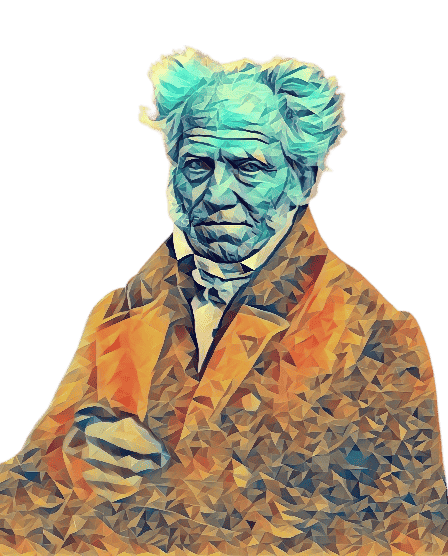Schopenhauer and Kant: Consciousness and Being
Philosophical discourse on the nature of reality, consciousness and being has long been a complex and nuanced field. Two prominent figures in this field, Arthur Schopenhauer and Immanuel Kant, offer profound insights that are both in agreement, or at least convergent, and different in interesting ways.
At the heart of their philosophies is the question of how consciousness and being interact with and define each other. Schopenhauer assumes that the existence of things depends on our being and that consciousness is therefore a product of our interactions with the world. Kant, on the other hand, sees consciousness as the foundation of being and argues that our perceptions and understanding shape reality itself. This article explores the similarities and differences between these two philosophical viewpoints.
Schopenhauer's view: Being as the basis

Building on Kantian premises, Schopenhauer held the view that the world is a representation formed by the subject. In his main work "The World as Will and Representation", Schopenhauer claims that objects and the outside world only exist insofar as they are perceived by a subject.
This means that the external world with all its objects and phenomena only becomes visible through the presence of an observer - be it a human or an animal. For Schopenhauer, then, consciousness is not the basis of being; rather, it is our being, our fundamental nature as will, that makes the perception of the world possible. The will, an irrational and driving force, is the true essence behind the representation that is the world.
You can find out more about Schopenhauer here.
Kant's view: Consciousness as the starting point

In his critical philosophy, particularly in the Critique of Pure Reason, Kant challenges the idea that our understanding of the world is a direct reflection of reality. Instead, Kant introduces the idea of the transcendental subject and argues that our consciousness gives structure to the raw data of experience through the faculties of understanding and sensation.
This structuring involves the application of space, time and the categories of understanding, which are not inherent properties of things in themselves (noumena), but rather the conditions under which we can perceive and understand the phenomenal world. For Kant, therefore, consciousness is not a product of existence in the world, but the precondition for any experience of the world. The world as we know it is thus fundamentally shaped by the perceiving subject.
You can find out more about Kant here.
Similarities and differences highlighted
The similarities between Schopenhauer and Kant lie in the fact that they recognize the role of the subject in shaping the world as we experience it. Both philosophers agree that the world is not just an external, objective reality, but is deeply interwoven with the presence and structure of consciousness.
However, their philosophies differ considerably in their understanding of the relationship between consciousness and being. For Kant, consciousness (or the transcendental subject) is the foundation on which all understanding and perception of the world rests. We can only recognize the external world through the filters and structures imposed on us by our senses and our mind.
While Schopenhauer starts from a Kantian framework, he goes a step further by emphasizing the primacy of the will - a blind, driving force that underlies our representation of the world. In his view, consciousness and the world as representation are subordinate to the will, which is the essence of being - which was also his greatest criticism of Kant's work (Source). Schopenhauer thus shifts the focus from the structuring role of consciousness to the underlying will, which manifests itself in our desires, actions and perceptions.
The philosophical debate between Schopenhauer and Kant on the nature of consciousness and being reveals the depth and complexity of the understanding of reality. Kant's emphasis on the primacy of consciousness as the basis of experience contrasts with Schopenhauer's view that consciousness is a manifestation of the deeper, underlying will.
Despite their differences, both philosophers contribute to a more comprehensive understanding of the interplay between the observer and the observed, between consciousness and the world. Their ideas are inspiring and thought-provoking when it comes to understanding the nature of our existence and the reality that surrounds us.







